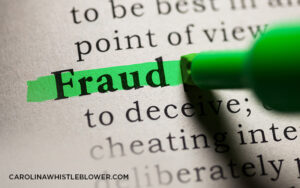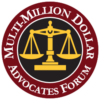Education Fraud Has Wide-Reaching Repercussions
Education fraud can hurt students, schools, the government, and taxpayers.
Education fraud can hurt students, schools, the government, and taxpayers.

The False Claims Act (FCA) allows citizens to sue wrongdoers on behalf of the government. This includes filing claims against organizations and individuals who purposely misuse government education funding for private gain.
Whistleblowers are critical to the efforts to recover taxpayer money lost to education funding waste, fraud, and abuse.
There are several different types of education fraud that violate the FCA, including:
The government is committed to assisting whistleblowers who report education fraud. Following are five examples of FCA claims that the government and citizens worked together to settle. (While Carolina Whistleblower Attorneys was not involved in these specific cases, the firm has successfully handled a number of whistleblower/qui tam cases.1)
Education Affiliates (EA), a for-profit education company, agreed to pay $13 million to resolve allegations that it violated the FCA by submitting false claims to the Department of Education for federal student aid for students enrolled in its programs. Among the allegations was that EA used fake diplomas, incentivized enrollment personnel, and misrepresented graduation and placement rates. Five whistleblowers were awarded payments totaling approximately $1.8 million.1
“Schools have an obligation to live up to their commitment to the government and their students when they accept federal student aid funds,” said Principal Deputy Assistant Attorney General Benjamin C. Mizer.
A Duke University lab analyst alleged that a biology researcher at the university falsified data on numerous research projects which was included in applications for federal research grants from the National Institutes of Health, the Environmental Protection Agency, and other agencies. Duke agreed to pay a $112.5 million settlement in 2019. The whistleblower who filed the FCA claim was awarded $33.75 million.1
“Taxpayers expect and deserve that federal grant money will be used efficiently and honestly,” said Matthew Martin, the U.S. Attorney for the Middle District of North Carolina.
Caldwell University in New Jersey agreed to pay $4.8 million1 to resolve allegations under the FCA that it submitted thousands of false claims to the U.S. Department of Veterans Affairs for Post-9/11 Veterans Education Assistance Act (Post-9/11 GI Bill) and the Department of Defense for payments under the Defense Tuition Assistance Act.
“Caldwell University tried to hoodwink the Department of Veterans Affairs and, worse, veterans themselves, by claiming to offer online classes developed and provided by Caldwell that were in fact marked-up offerings by an online correspondence school,” said U.S. Attorney Carpenita.
One of the largest U.S. for-profit education companies, Education Management Corp. (EDMC), reached a $95.5 million settlement resolving allegations of FCA violations for falsely certifying that it was in compliance with Title IV of the Higher Education Act (HEA). The primary allegation was that EDMC illegally recruited students by paying admissions personnel purely on enrollment numbers, in addition to using deceptive recruiting practices. The whistleblowers who filed the four FCA qui tam claims will collectively receive $11.3 million.1
“This historic resolution exemplifies the Justice Department’s deep commitment to protecting precious public resources; to defending American consumers; and to standing up for those who are vulnerable to mistreatment, abuse, and exploitation,” said Attorney General Loretta E. Lynch.
Four student aid lenders settled a $57.75 million FCA lawsuit to resolve allegations that they improperly inflated their entitlement to certain U.S. Department of Education (DOE) interest rates. A former DOE employee alleged that the lenders participating in the federal student financial aid programs had created billing systems that allowed them to receive improperly inflated interest rate subsidies from the DOE. The whistleblower will receive $16.65 million1 for his efforts from this settlement.
“Through the efforts of one citizen and the government, these lenders will be paying millions back to the government,” said Neil MacBride, in his capacity as U.S. Attorney for the Eastern District of Virginia.
In all of these examples, individuals faced an uphill battle in reporting the education fraud they encountered. But they prevailed.1 And the Carolina Whistleblower Attorneys can help you “fight the good fight” if you believe education fraud is happening.
Contact us online today for a free and confidential evaluation of your whistleblower qui tam case. Or call us at 1-888-292-8852. We are here to guide you through the process and help you report education fraud.
We believe that education fraud needs to be stopped and that the whistleblowers who come forward with qui tam claims should be protected and recognized for their efforts. Take a look at our “You-First Policy,” which spells out our commitment to whistleblower clients.
Whistleblowers can help stop education fraud so that government funds are not misused. We want to help whistleblowers.
“Bill has the ability to ‘think outside the box’…which makes him extremely effective as an advocate for his clients.” 1 — Attorney who previously worked with Bill






If you’re wondering if it’s a good idea to speak with a whistleblower lawyer about what you know, let us set the record straight.
"*" indicates required fields